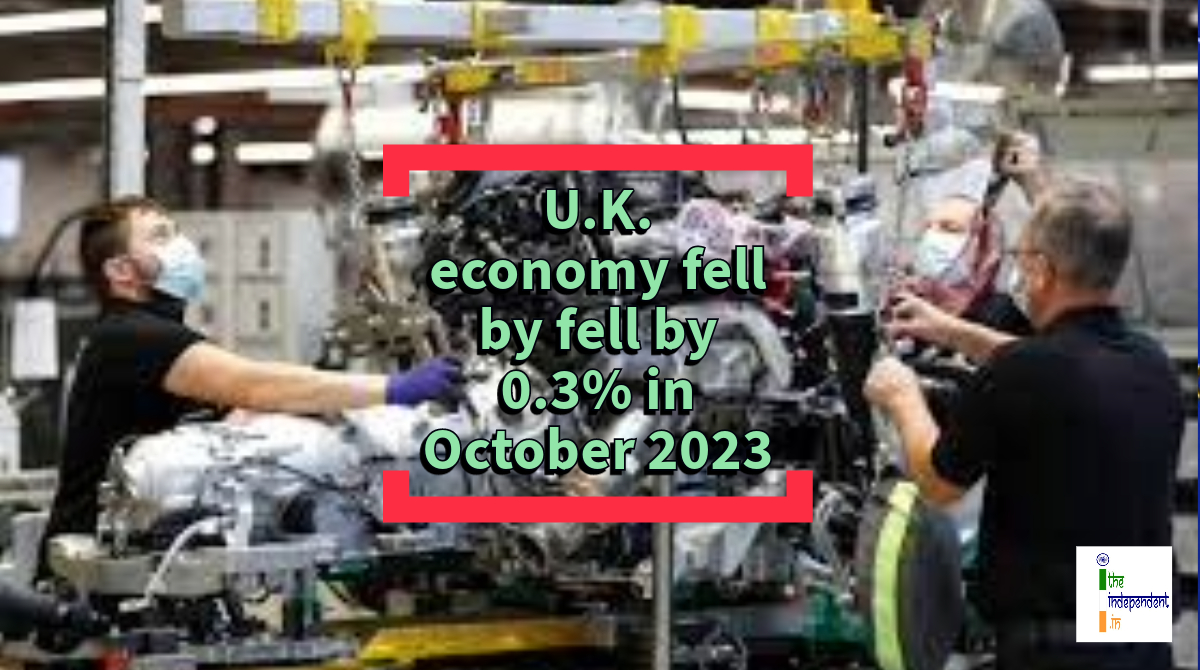
UK economy experienced a contraction in October due to decline in output in the main sectors of services, manufacturing, and construction
As per the latest data released by the Office of National Statistics (ONS), the United Kingdom’s (U.K.’s) economy fell by 0.3% in October 2023, after growing 0.2% in October 2023.
It is for the first time since July 2023 that the economy shrunk on a month-by-month basis. The services sector shrank by 0.2%, driven by a fall in information and communication, and was the main contributor for the fall in the economy.
The production output fell by 0.8% in October 2023, driven by widespread declines in manufacturing, after showing no growth in September 2023. The construction sector fell by 0.5% in October 2023 after growth of 0.4% in September 2023.
Taking it to X, the ONS tweeted,
GDP was flat (0.0% growth) in the three months to October.
— Office for National Statistics (ONS) (@ONS) December 13, 2023
In the month of October, GDP fell 0.3%.https://t.co/k1USftqo5r pic.twitter.com/OUdm9sRpaO
Speaking on the occasion, the Director of Economic Statistics, ONS – Darren Morgan, said, “Our initial estimates suggest that GDP growth was flat across the last three months. Increases in services, led by engineering, film production and education – which recovered from the impact of summer strikes – were offset by falls in both manufacturing and housebuilding”.
The UK economy shrank by more than expected in October 2023 as higher interest rates squeezed consumers and bad weather swept the country. Household spending was affected by rate rises as the Bank of England (BoE) tried to tackle inflation. Meanwhile, retail and tourism were hit by severe weather in October 2023 as Storm Babet lashed the U.K.
The latest estimates underline the ongoing impact of the cost-of-living crisis and the tools employed by policymakers. Up until September 2023, the BoE had raised interest rates 14 times in a row to control inflation. However, while raising rates can reduce inflation, it also affects economic growth by making it more expensive for consumers and businesses to borrow money. Presently, the interest rates are at a 15-year high of 5.25% and are expected to remain high for some time.
The Chief Economist at KPMG, U.K. – Yael Selfin said that the U.K. is likely to escape a recession but households would face further pain as around 1.5 million fixed-rate mortgages expire next year and people’s repayments go up. She believes that the BoE will not raise interest rates at its next meeting tomorrow, i.e., Thursday, December 14, 2023, and is unlikely to start cutting them until inflation, which is currently at 4.6% gets closer to the 2% target. The Governor of BoE had previously warned that the rate cuts would not happen for the foreseeable future.







